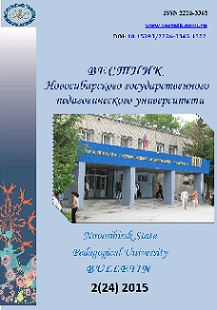ПРОСПЕКТИВНЫЙ СМЫСЛ СЛОВА КАТАСТРОФА В РОМАНЕ Ф. М. ДОСТОЕВСКОГО «ПОДРОСТОК»
«THE RAW YOUTH» OF F. DOSTOEVSKY: PROSPECTIVE SEMANTICS OF THE CONCEPT «CATASTROPHE»
Author(s): Alexey Evgenevich KozlovSubject(s): Language and Literature Studies
Published by: Новосибирский государственный педагогический университет
Keywords: Dostoevsky; narration experiment; discourse; prospection
Summary/Abstract: The article deals with prospective senses of the word “catastrophe” in Dostoevsky’s novel “The Raw Youth”. Modern dictionaries of the author’s discourse can present trivial semantics of the word, but prospective semantics aren't presented there. Analysis of the immanent lexical sense of the word is not always correct; so it is necessary to apply methods of narratology. Often the word “catastrophe” marked the extremum of narration, culmination (in “the Idiot”, “the Posessed”, “The Brothers Karamazov”etc). For the first time Dostoevsky used this word in his “Petersburg Notes”, where the empiric reality and art structure are compared. But this word has different semantics in “The Raw Youth”, which is closely connected with an illocutionary trap and destruction of discourse. Arkady Dolgoruky can’t reflect the true situation in writing. He fails to understand it properly being in the trap if his own text. During the novel Arcady makes attempts to destroy ‘the art discourse’, but he returns again to narration ‘as art’. Probably, the failure is expressed by the word ‘catastrophe’. We can say that the word catastrophe is the awareness of a narration catastrophe. This narration experiment is a new stage of games with the reader culminating in complex qui pro quos in “The Brothers Karamazov”.
Journal: Вестник Новосибирского государственного педагогического университета
- Issue Year: 2015
- Issue No: 2
- Page Range: 183-192
- Page Count: 10
- Language: Russian

